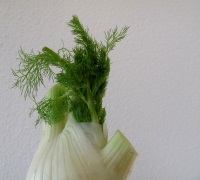what is the effect of medicinal plants?

The Standard of today’s herbal medicine is high, their history goes all the way back to ancient Egypt. Ancient writings from China, reports on the use of medicinal plants, and many of these experiences are, even today, 5000 years later, still up to date. In part, the historical insights were discarded, many, however, confirmed.
With today’s research methods, new Knowledge regarding the content of materials and chemical nature won, and not only effects, but also side-effects of the medicinal plants are listed. So is “purely vegetable,” or “of course” is not free to equate to in addition to effect, however moderate use in determining the side effects. That is why natural remedies are over-the-counter in pharmacies and drugstores. Some herbs should not be missing in any medicine Cabinet:
Fennel
 As a tea of fennel for digestive disorders such as diarrhea, constipation or bloating helps fennel tea with honey relieves cough. There are no known side effects, he comes especially in Pediatrics to use and can be infants administered. Outwardly, he brings applied inflammation of the eye faster to decay. Fennel oil has a strong disinfecting power.
As a tea of fennel for digestive disorders such as diarrhea, constipation or bloating helps fennel tea with honey relieves cough. There are no known side effects, he comes especially in Pediatrics to use and can be infants administered. Outwardly, he brings applied inflammation of the eye faster to decay. Fennel oil has a strong disinfecting power.
St. John’s wort
 St. John’s wort works as a stimulant and is considered as herbal anti-depressant. As a capsule or tea is taken, it is reassuring for nervous restlessness and insomnia. As a component of skin oil it finds application in the treatment of psoriasis and other skin diseases. Side effect: St. John’s wort may reduce the efficacy of the anti-baby pill to weaken. In addition, it increases the light sensitivity of the skin.
St. John’s wort works as a stimulant and is considered as herbal anti-depressant. As a capsule or tea is taken, it is reassuring for nervous restlessness and insomnia. As a component of skin oil it finds application in the treatment of psoriasis and other skin diseases. Side effect: St. John’s wort may reduce the efficacy of the anti-baby pill to weaken. In addition, it increases the light sensitivity of the skin.
Birch leaves
 Boiling water poured on, come on birch leaves in diseases of the bladder and kidneys. You can prevent urinary stones, relieve rheumatism and gout.
Boiling water poured on, come on birch leaves in diseases of the bladder and kidneys. You can prevent urinary stones, relieve rheumatism and gout.
Side effect/note: If you have reduced heart or kidney activity of birch leaves may not be applied.
Sage leaves
 Sage comes in a variety of complaints. Prepared as a tea, inhibits it from excessive perspiration, relieves inflammation in the mouth and throat, as well as a feeling of fullness.
Sage comes in a variety of complaints. Prepared as a tea, inhibits it from excessive perspiration, relieves inflammation in the mouth and throat, as well as a feeling of fullness.
Side effect: Only in the case of Overdose, and application over a very long period of time, it can lead to dizziness and increased heart rate.
Peppermint
 The peppermint is one of the most well-known medicinal plants. Their field of application is wide-ranging. As a tea it soothes the stomach and intestines, diarrhea, bloating, cramps and General indigestion, and stimulates the production of bile. Externally, the pepper is used mint as a healing vegetable oil. Over a large area on the neck, forehead and temples applied, relieves this rapidly headaches. It is very important to make sure that the Oil eyes distance rubbed as it may cause irritation and tearing of the eyes. In migraine peppermint oil does not help.
The peppermint is one of the most well-known medicinal plants. Their field of application is wide-ranging. As a tea it soothes the stomach and intestines, diarrhea, bloating, cramps and General indigestion, and stimulates the production of bile. Externally, the pepper is used mint as a healing vegetable oil. Over a large area on the neck, forehead and temples applied, relieves this rapidly headaches. It is very important to make sure that the Oil eyes distance rubbed as it may cause irritation and tearing of the eyes. In migraine peppermint oil does not help.
Side effects are not known, which is why mint tea is also without acute complaints, an ideal thirst quencher.
Photos: Joujou / conny-wr / Günter Havlena / christian alex / Katrin Schindler /pixelio.de
